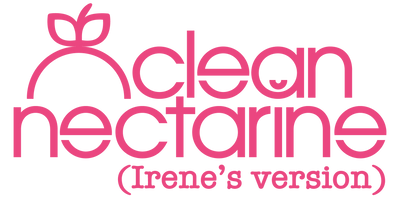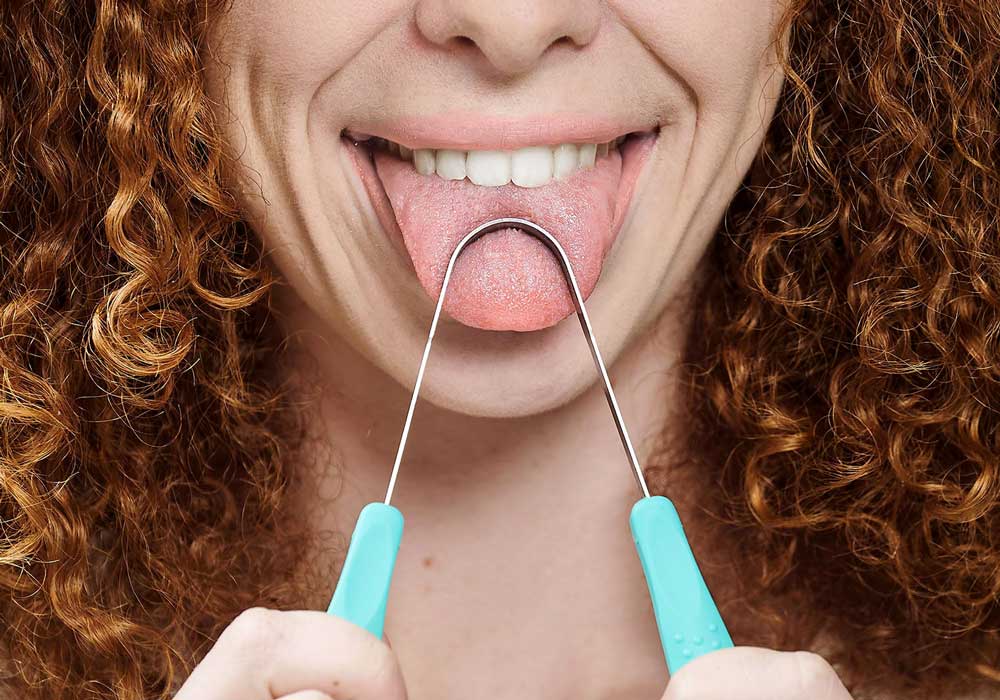No matter what anyone says, your toothbrush isn't doing a good enough job on your tongue. They're made for teeth, not for scraping away the bacteria that builds up overnight. Tongue cleaning has been around for centuries, and once you start, you’ll wonder how you went without it. Here's why I never skip it.
Why Clean Your Tongue? The Potential Benefits
When it comes to removing the coating on the tongue, you can expect a fresher mouth and possibly sharper taste. Some research even suggests it may help with taste perception. A 2018 study in the Journal of Nutrition, Health and Aging noted that "tongue cleaning, a simple technique used for oral hygiene, may be an effective way to reduce excess salt intake" by affecting taste sensitivity (Seerangaiyan et al., 2018).
Research also shows that using a tongue cleaner is five times more effective than using a toothbrush for tongue hygiene, and it’s clinically proven to remove up to 30% more bacteria from your tongue.
The Ayurvedic Tradition of Tongue Cleaning
Tongue cleaning has a long history in Ayurvedic self-care, where it’s viewed as a way to remove 'ama' or impurities.
In Ayurveda, India's 5,000-year-old holistic health system, tongue cleaning is considered a daily essential. It's used to help remove bacteria, food debris, and coating from the tongue, all things that can affect breath and dull your sense of taste.
Ayurveda ties tongue cleaning to the doshas (vata, pitta, kapha), the energies believed to govern the body. By clearing that coating from your tongue, you're thought to be supporting balance and overall health according to traditional principles.
Understanding Tongue Bacteria
There are around 20 billion bacteria in your mouth at any given time. While some play important roles, the tongue can collect bacteria linked to dental plaque and less-than-fresh breath.
A 2019 study in Frontiers in Cellular and Infection Microbiology found that "regular tongue hygiene both affects the composition of the microbiome and changes the activity of the community" (Tribble et al., 2019).
What Research Shows About Tongue Cleaning
Breath Freshness: Tongue cleaning may help remove the bacteria and debris that contribute to breath odour. A 2001 study in the Journal of the American Dental Association noted that "tongue cleaner and tongue scraper appeared to affect oral VSC levels more than the toothbrush" (Seemann et al., 2001). Volatile sulphur compounds (VSCs) are a key cause of bad breath. This simple step makes a big difference.
Taste Perception: Some research suggests it might even affect how you taste. A 2018 study noted changes in taste sensation after tongue cleaning (Seerangaiyan et al., 2018). Another 2021 study found that “fourteen days of mechanical tongue cleaning may affect gustatory functions” (Timmesfeld et al., 2021).
Oral Hygiene: That same 2019 study in Frontiers in Cellular and Infection Microbiology observed that tongue cleaning "affects the microbiome composition and changes the activity of the community.” It’s a gentle, easy way to support a healthier oral environment.
How to Choose a Tongue Scraper: Steel vs Copper
If you're ready to try tongue cleaning, the first step is choosing your tool. Stainless steel scrapers are easy to clean, durable, and don’t tarnish, making them perfect for everyday use. Copper scrapers are the traditional choice in Ayurveda. They do require a little more care to keep them clean, but I love their link to ancient wellness practices.
Here are two I use and recommend:
Dr. Tung's Stainless Steel Tongue Cleaner
The Dr Tung's Stainless Steel Tongue Cleaner is the one that brought this traditional practice into the mainstream 30 years ago. It’s made from high-grade stainless steel and helps remove coating for a fresher mouth and cleaner start to your day.
Black Chicken Remedies Cuprum Tongue Cleaner
The Black Chicken Remedies Cuprum Tongue Cleaner is made from solid copper, traditionally used in Ayurveda. It’s beautiful, simple, and effective, and has become a part of my morning ritual.
How to Use a Tongue Scraper: Step-by-Step Guide
- Best timing: First thing in the morning, before eating or drinking anything. Your tongue is usually most coated when you wake up.
- Technique: Place the scraper as far back as comfortable, then gently pull it forward 3–5 times.
- What to expect: You’ll likely see some coating removed, the amount can vary depending on hydration and overall health.
- Aftercare: Rinse and dry your scraper after each use and store it somewhere clean.
- Make it a habit: I do it morning and night as part of my regular brushing and flossing routine.
Other Natural Dental Products I Love
Tongue scraping is one piece of the puzzle. Here are a few other practices that keep my mouth feeling fresh:
- Natural toothpaste: I love the Weleda Salt Toothpaste, it’s made with sea salt to encourage natural salivation as you brush, which increases the cleaning power of the natural ingredients.
- Ayurvedic mouthwash: The Auromere Neem & Peelu Mouthwash is packed with herbal ingredients and leaves the mouth feeling extra fresh.
- Oil pulling: Black Chicken Remedies Oral Swishing Oil is a blend of coconut and essential oils that makes oil pulling easy and enjoyable.
- Dental floss: I use the Dr Tung's Smart Dental Floss, it's free from PFAS, PTFE & BPA and clinically proven to remove up to 55% more plaque than common dental floss.
You can explore the full range of natural dental care products I use here.
Tongue scraping has totally changed the way my mouth feels, give it a go and see what you think.
Common Questions About Tongue Cleaning
What is tongue cleaning?
Tongue cleaning, or scraping, is an oral hygiene practice where you gently remove coating from your tongue using a tool. It’s been part of Ayurvedic traditions for centuries and is now gaining traction for its role in breath freshness and oral care.
Does it really make a difference?
Yes, and the science backs it up. Research shows that using a tongue cleaner is five times more effective than using a toothbrush and removes up to 30% more bacteria. It helps reduce odour-causing bacteria, improves how my mouth feels, and can even make food taste better.
How often should I do it?
Every morning when you wake up, just before brushing your teeth. Follow with your favourite natural mouthwash.


Leave a comment